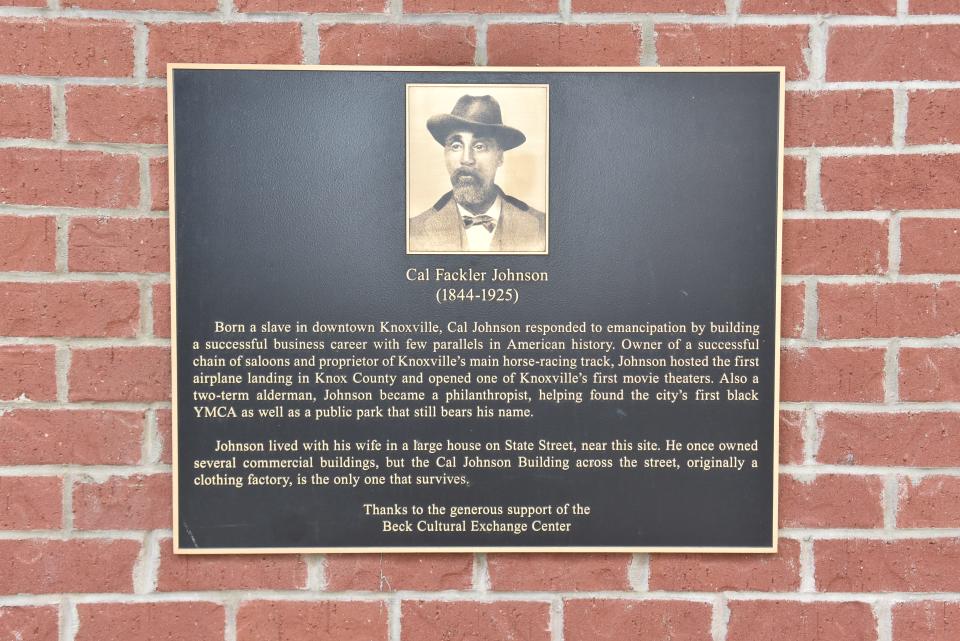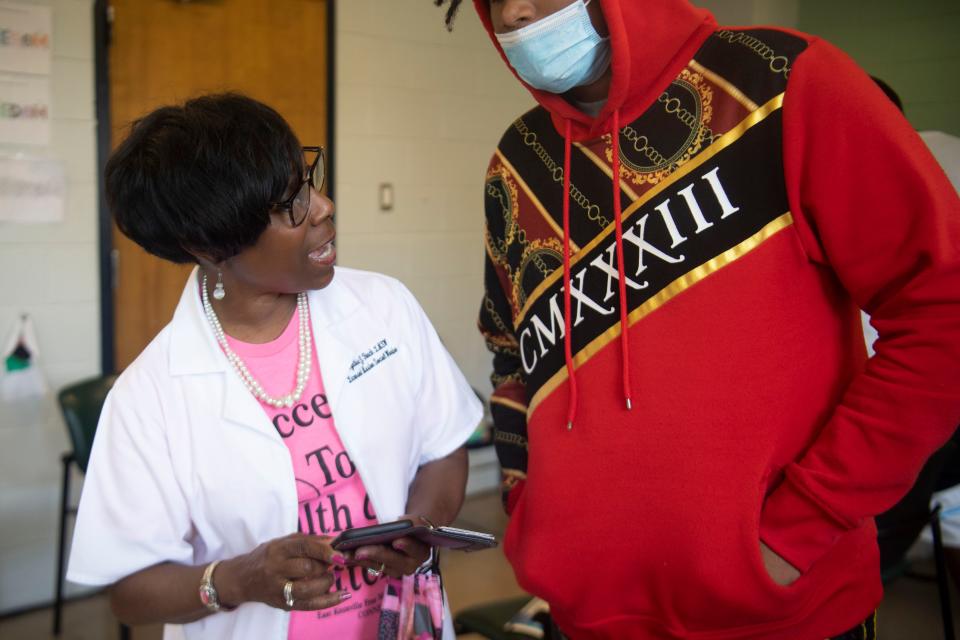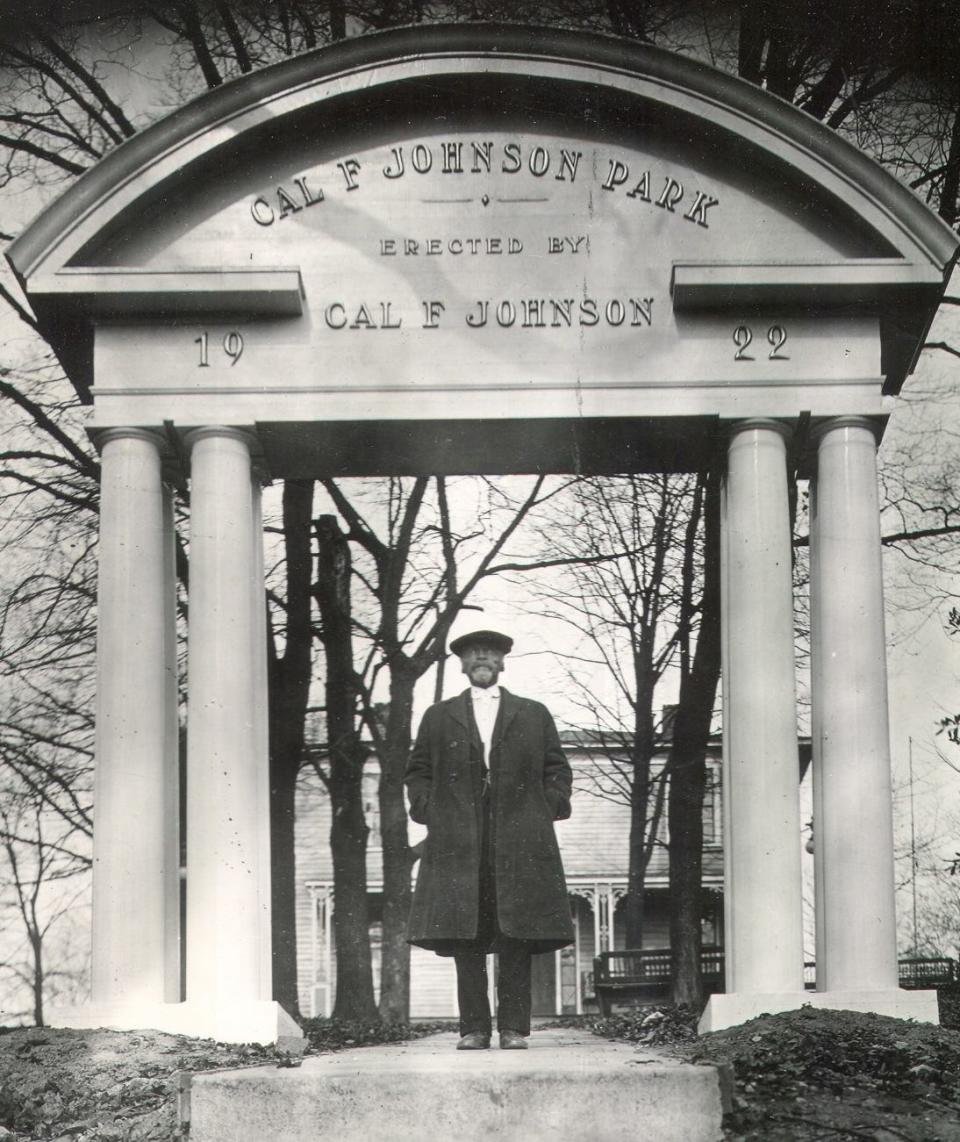Black community crucial in establishing Knoxville YMCA, YWCA branches | Opinion
The Cansler Family YMCA and the YWCA Phyllis Wheatley Center have served Knoxville's Black community for more than a century. Although the YMCA was established 14 years before the YWCA, both have offered valuable activities through the years. Both have been operated by noted individuals who led them through hard times.

The original YMCA was established by former slave Cal Johnson in memory of his late wife, Alice Johnson, on May 14, 1906, on East Vine Avenue at Patton Street. It was a two-story building with a full basement. The large backyard had a tennis court and ball field. Its first secretary was Robert S. Beard Sr.

The first mention of the YWCA appeared in the Knoxville Journal on May 14, 1920. It said, "The negroes of Knoxville have launched a drive for $3,000 with which to establish a negro branch of the Young Women's Christian Association. They expect to realize the entire amount among their own race." Since Nashville and Chattanooga already had YWCA branches, girls from Austin High School made four-minute speeches in all the Black schools in support of the organization.
The Central YWCA here put $1,000 in its budget to help finance the project. A letter was sent to every responsible Black person in Knoxville, citing the work of the organization in Louisville, Kentucky; Atlanta, Georgia; Richmond, Virginia; Nashville; Chattanooga; and other places. All girls over the age of 12 were urged to join.
Hear more Tennessee voices: Get the weekly opinion newsletter for insightful and thought-provoking columns.
During the dedication of the YMCA in 1906, Mayor Samuel Heiskell said Cal Johnson's gift "was the largest gift ever made to a YMCA by a colored man." The Journal of May 15,1906, reported the event at Market Hall and said, "It was one of the greatest meetings and concerts ever given in Knoxville by colored people." President Theodore Roosevelt, while dedicating a Black YMCA in Washington, D.C., on Nov. 28, 1908, mentioned Johnson's gift here.
By Feb. 5, 1922, the Phyllis Wheatley YWCA was well established on East Clinch Avenue at Mulvaney Street, where it occupied four rooms on the second floor of a large building. The Knoxville Tribune noted: "The two Bible classes, teeming with interest, are taught by scholars and pastors from the largest negro congregations of the city. A class in first-aid and nursing, taught by the superintendent of the Knoxville College Hospital, will receive certificates from the Red Cross Society."
There were also classes in English, Spanish, sewing, music and domestic science. The employment bureau was helping place women and girls in jobs around the city. Funds were being raised to find a more suitable building.
The YMCA during this period had ceased to exist. It had no director between 1917 and 1940. Johnson reclaimed the property and rented it to private individuals. In 1942 The Y was revived at 208 E. Vine Ave. and named for the beloved school principal Charles Warner Cansler.

Sign up for our newsletter: Read compelling columns by Black writers from across Tennessee.
The Jan. 25, 1923, Journal reported that the Phyllis Wheatley YWCA had bought a new home on Temperance Street near the Carnegie Library. "It is said to have been bought for $3,000. Certain improvements will be made at once to convert it into suitable quarters. The first floor will be used for classrooms. The second floor will be maintained as a dormitory."
Today the YWCA is on Cruze Street and the YMCA is on Jessamine Street. They are important and valuable community assets.
Robert J. Booker is a freelance writer and former executive director of the Beck Cultural Exchange Center. He may be reached at 546-1576.
This article originally appeared on Knoxville News Sentinel: Black community crucial in establishing Knoxville YMCA, YWCA branches

